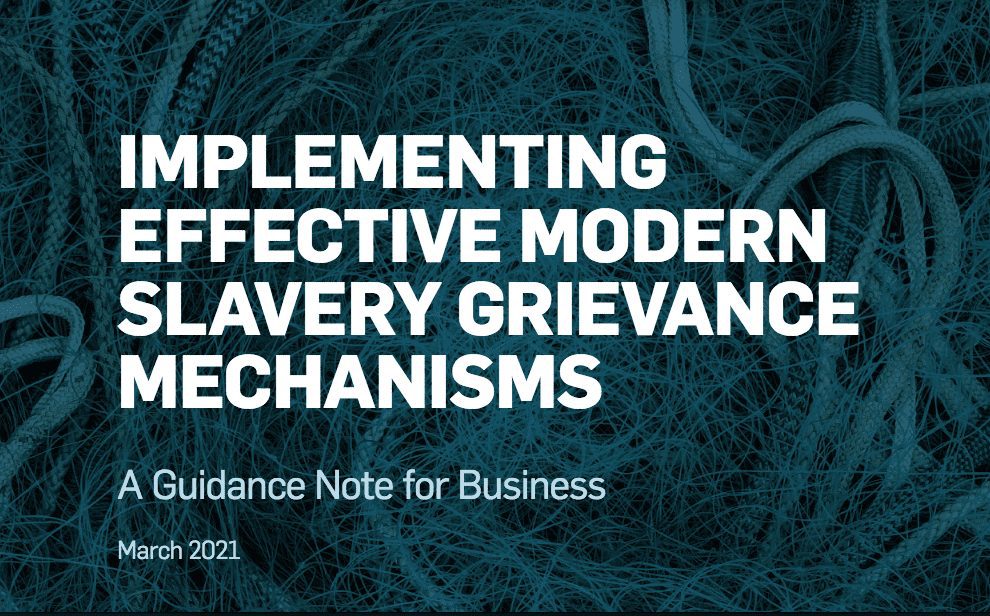
Implementing Effective Modern Slavery Grievance Mechanisms
The need for effective grievance mechanisms that identify and remediate business involvement in modern slavery harms (and more broadly, support responsible business practices) is increasingly recognised by key stakeholders including businesses, worker organisations, civil society, investors and Government regulators. Yet one of the biggest challenges for business remains how to do so in a trusted and meaningful way. This guide supports businesses to understand the actions required to design and implement effective grievance mechanisms to hear and address modern slavery complaints.What is modern slavery?Modern slavery is an umbrella term that refers to exploitative practices including forced labour, slavery, servitude, debt bondage, human trafficking, deceptive recruiting for labour services, the worst forms of child labour and forced marriage. An estimated 40 million people live in modern slavery conditions globally, including 16 million in private sector supply chains3. In 2019, Government estimates found that up to 1900 people in Australia experienced modern slavery over a two-year period (2015–2016 and 2016–2017). Businesses face a growing number of external expectations to develop effective grievance mechanisms to hear complaints relating to business involvement in modern slavery. They are also expected to provide for or cooperate in remediation through legitimate processes where they identify that they have caused or contributed to adverse impacts, and may take a role in doing so if they are directly linked to these impacts through their operations, products or services. As highlighted in the companion report, Effective Modern Slavery Grievance Mechanisms: A Case Study Publication for Business (the case study report), these expectations stem from the authoritative international framework for responsible business practices, the United Nations (UN) Guiding Principles on Business and Human Rights (UNGPs). The UNGPs say that businesses should establish or participate in effective operational-level grievance mechanisms for individuals and communities who may be adversely impacted by the business.5 The responsible business standards set by the UNGPs are also increasingly being enshrined in domestic legislation, such as Australia’s Modern Slavery Act 2018 (Cth) (Australian Act). The Australian Act requires entities that meet a specified revenue threshold to publicly report on how they
Read more here.
